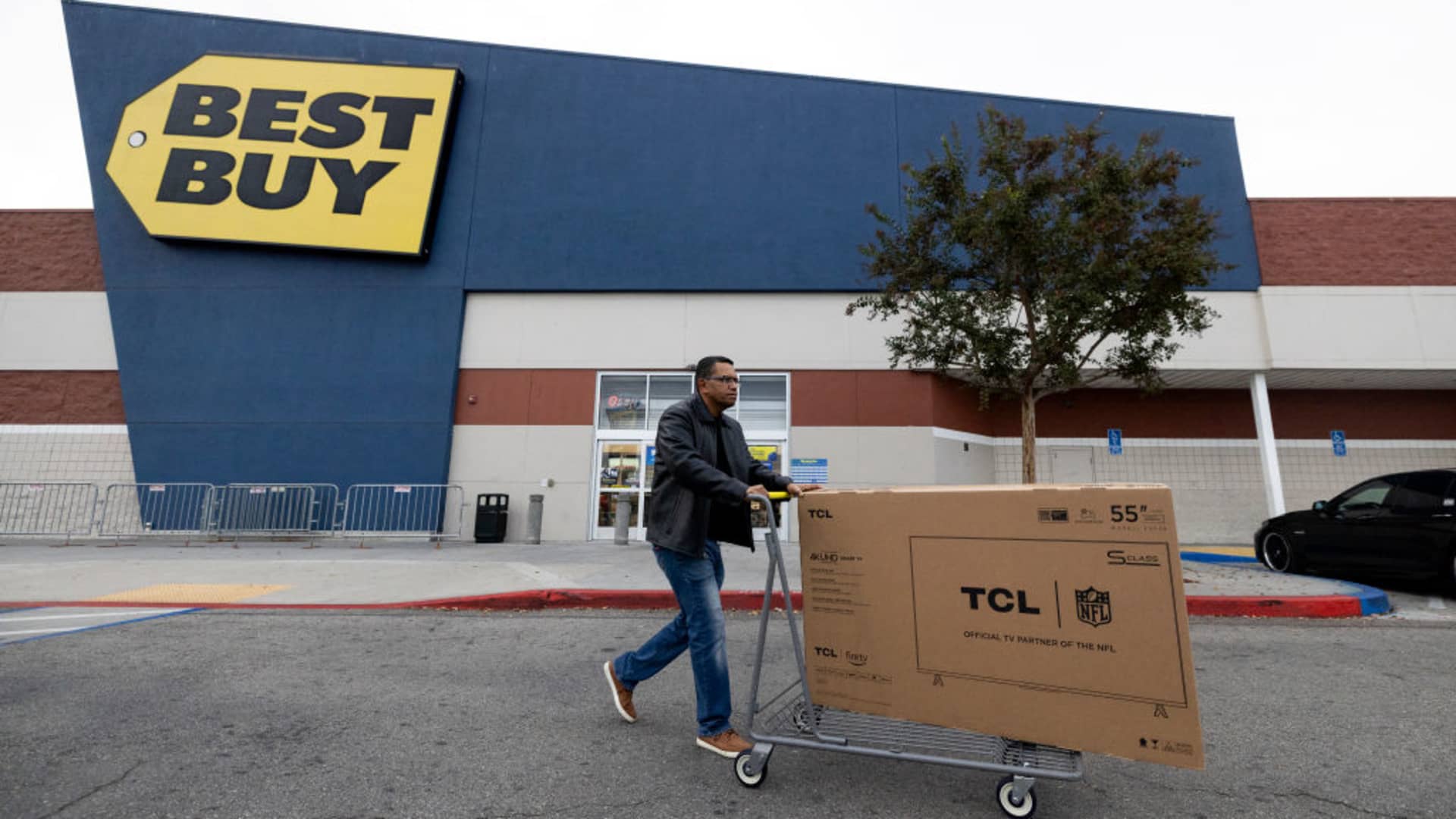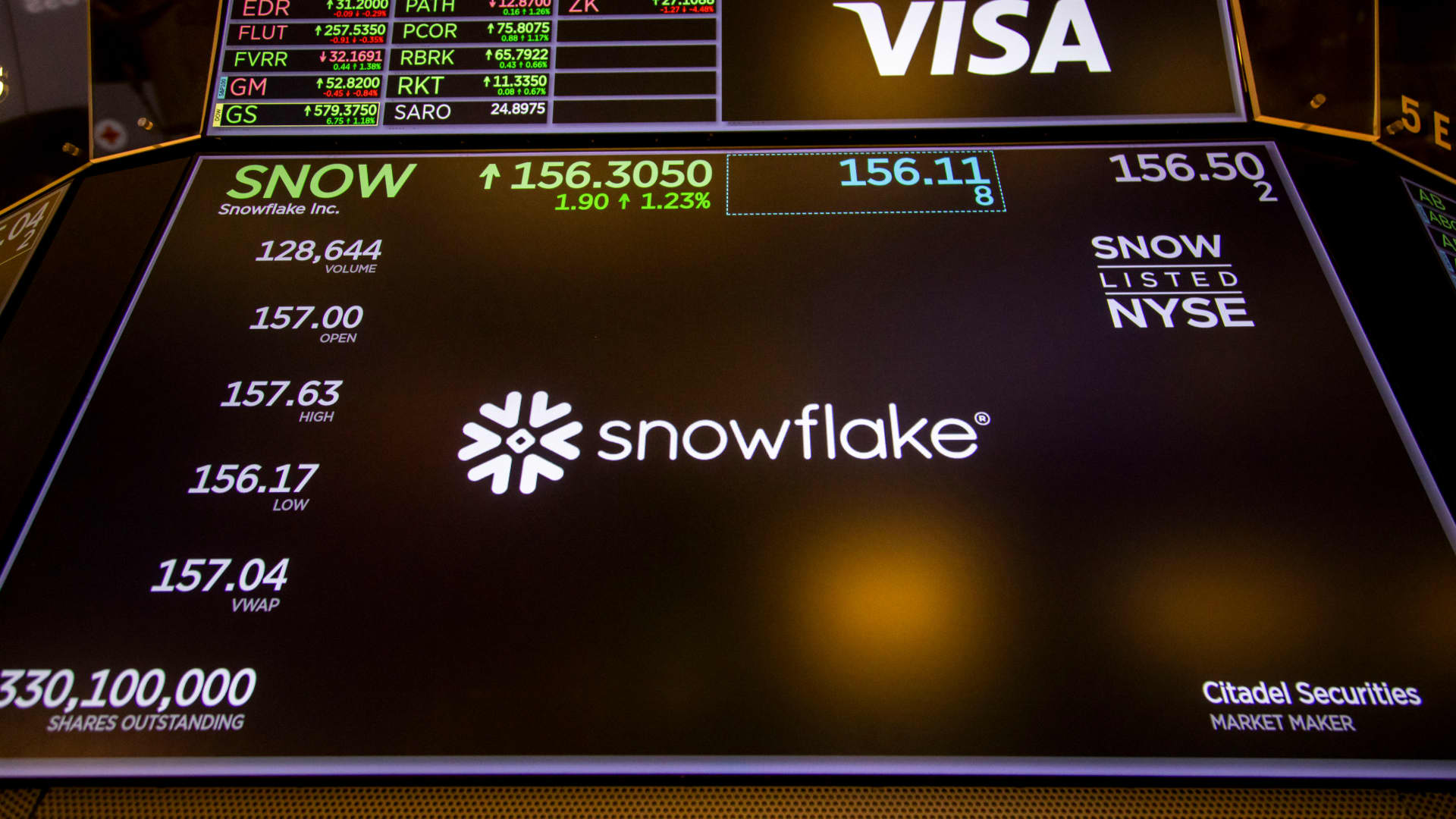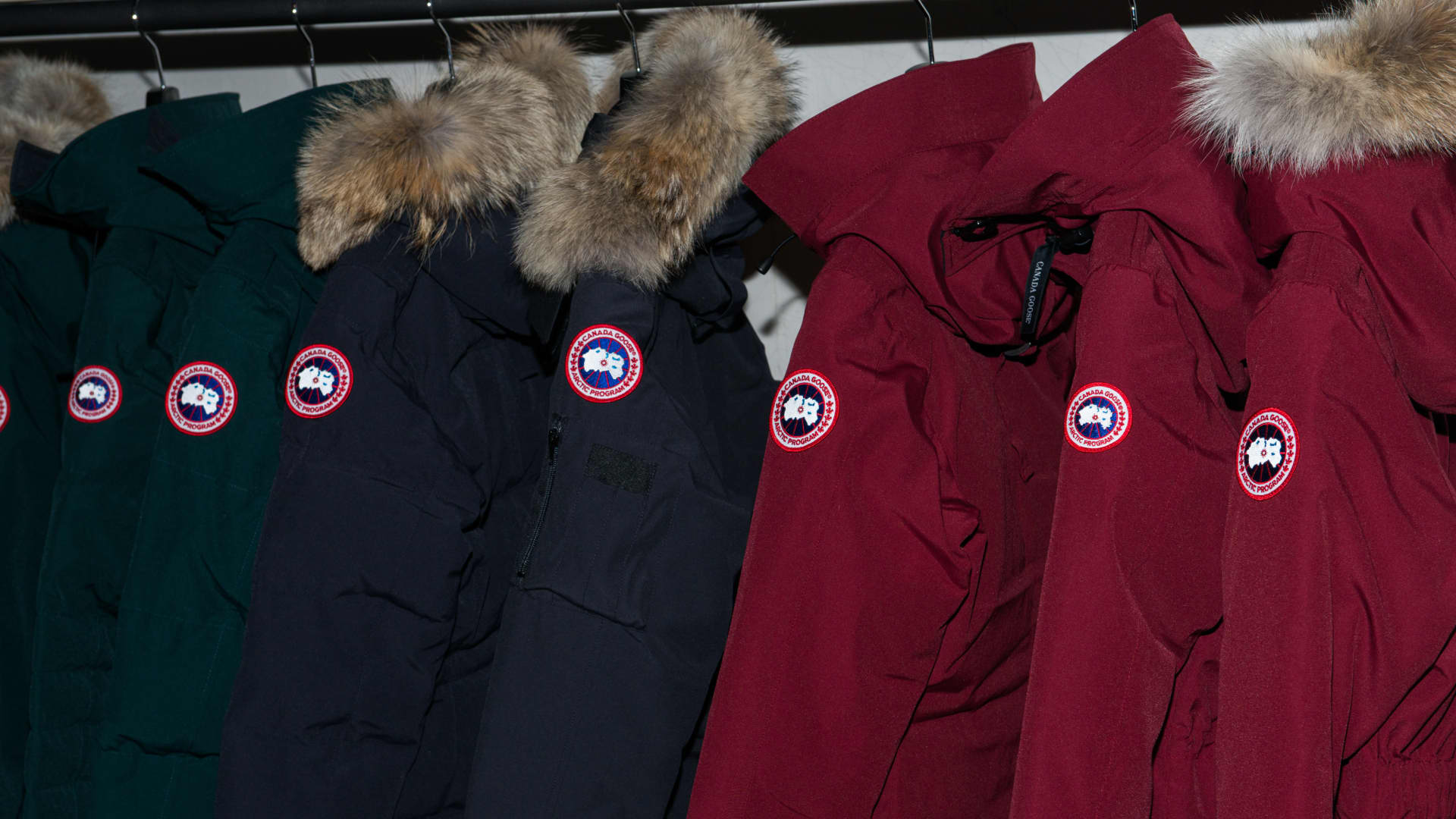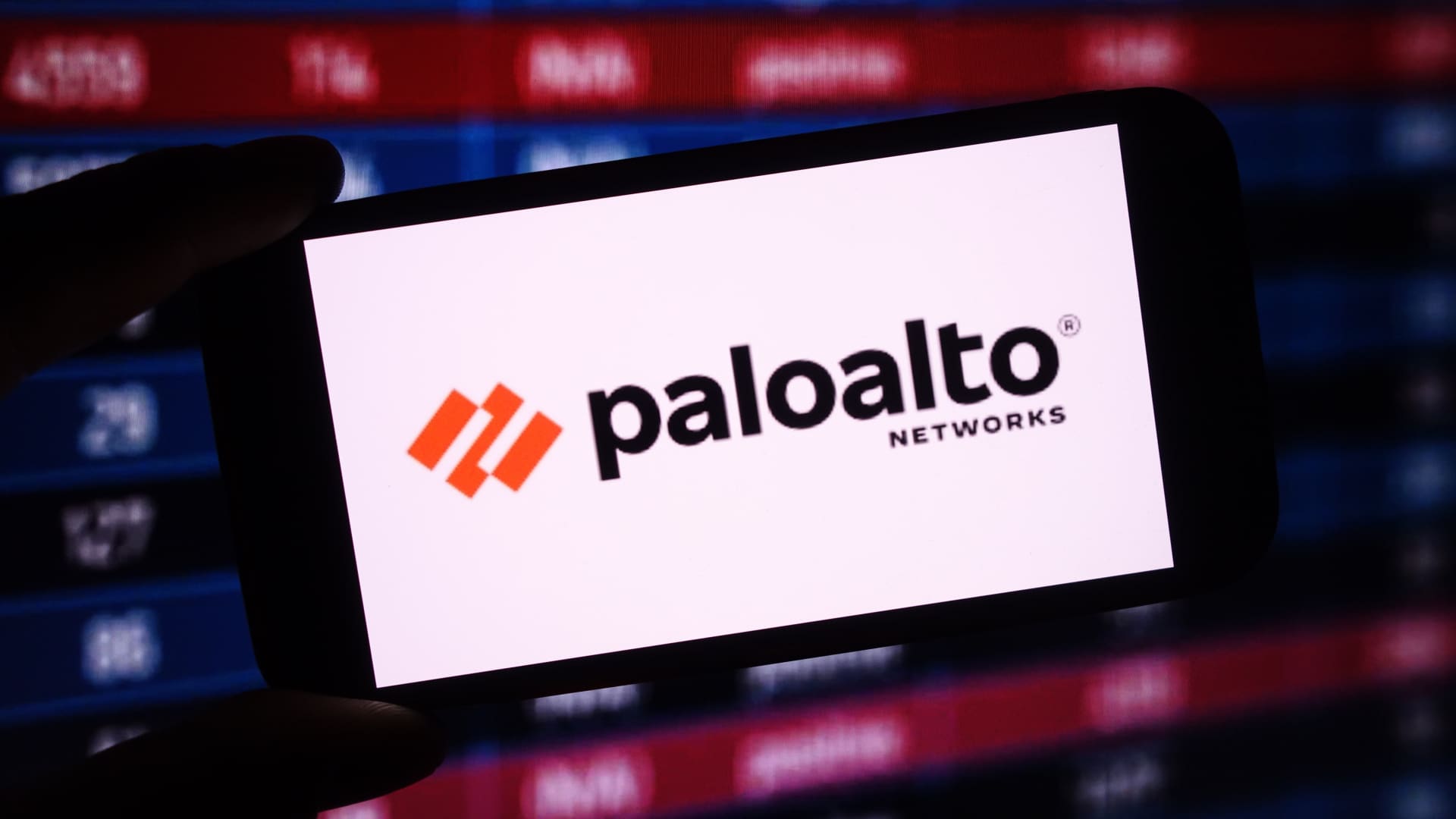Check out the companies making headlines in midday trading: Okta — Shares surged 18% after the cloud software firm posted a fourth-quarter earnings and revenue beat. Okta reported adjusted earnings of 78 cents per share on revenue of $682 million, while analysts polled by LSEG expected 74 cents in earnings per share and $670 million in revenue, according to LSEG. GitLab — Shares gained 5% after the software platform posted a fourth-quarter earnings and revenue beat. On the other hand, GitLab guided for full-year earnings that came in below what analysts polled by FactSet had expected. Target — Worries around weak sales weighed on the retailer’s shares, dragging them down roughly 5%. Though Target posted fiscal fourth-quarter earnings and revenue that topped Wall Street’s expectations, the company flagged “soft” sales in February, along with “declining consumer confidence.” CEO Brian Cornell also told CNBC that President Donald Trump’s 25% tariffs on Mexican goods could lead to higher prices on imported produce, which the retailer relies on during winter months. Best Buy — The consumer electronics retail stock plunged 14% after CEO Corie Barry warned of higher prices for U.S. consumers on the back of President Trump’s new China and Mexico tariffs. Barry pointed to the two nations as key sources for the company’s supply chain, with Best Buy sourcing around 55% and 20% of products from China and Mexico, respectively. Still, Best Buy reported a fourth-quarter earnings and revenue beat. Tesla — The electric vehicle stock fell 4% after data from the China Passenger Car Association revealed that Tesla’s sales of vehicles made in China dropped nearly 50% in February year over year. Tesla sold just 30,000 of the vehicles, which was its lowest number in more than two years. Walgreens Boots Alliance — The pharmacy retail chain popped 7% after The Wall Street Journal reported that it was nearing a deal to go private, citing people familiar with the matter. Walgreens is aiming to close the roughly $10 billion deal with private equity firm Sycamore Partners as soon as Thursday. Magna International — The Canadian parts manufacturer slipped 3% following a downgrade at Bank of America to a neutral rating from buy. Analyst John Murphy pointed to Canada and Mexico tariffs as posing significant production risks and potentially creating supply chain shocks that could be comparable to those of the Covid-19 pandemic. JetBlue Airways — The airline carrier shed 7% on worries of slowing U.S. economic activity . Additionally, Deutsche Bank downgraded the stock to hold from buy, noting that emerging economic weakening would likely weigh on demand for air travel, particularly domestically. On Holding — Shares gained 5% after the athletic shoe and sportswear firm posted fourth-quarter revenue and profit that beat Wall Street estimates. However, On’s full-year 2025 net sales estimate fell slightly short of what analysts were expecting, on average. Cruise stocks — Royal Caribbean dropped nearly 6% after announcing a three-year performance initiative. By the end of 2027, the ” Perfecta Program ” aims for adjusted earnings per share to hit a compound annual growth rate of 20% versus 2024 and to generate return on invested capital in the high teens. Shares of Carnival and Norwegian Cruise Line slid 6% and 4%, respectively, in sympathy. Auto stocks — Shares of the “Big Three” automakers fell on Tuesday after President Trump enacted 25% tariffs on Mexico and Canada . General Motors fell 3%, while Ford and Stellantis dropped more than 2% and more than 4%, respectively. Barclays analyst Dan Levy said that if the companies don’t raise prices in response, the tariffs could wipe out all profits for the three names. Chipotle Mexican Grill — Shares of the fast-casual chain slipped 2.3% on the back of tariff concerns. Chipotle CEO Scott Boatwright said the company sources around 50% of its avocados from Mexico , but has diversified supply to come from other South America countries in recent years. Airlines — Shares of major airlines tumbled as economic worries weighed on the names and the rollout of President Trump’s tariffs heightened concerns around consumer spending. Shares of United Airlines and Delta Air Lines fell more than 5%. American Airlines lost 4%. Allegiant Travel dropped 7%, and Frontier Group slid 3%. Starbucks — The coffee chain slipped 1.8% after announcing that Nordstrom Chief Financial Officer Cathy Smith will join Starbucks as its new chief financial officer starting next month. She will replace Rachel Ruggeri, who has served in the role since 2021. Crypto stocks — Stocks closely tied to the crypto industry were under pressure amid a broad risk-off move in markets, including a 1% drop for bitcoin. Shares of trading platform Coinbase fell 0.6%. Brokerage firm Robinhood , which offers stock and crypto trading, sank 5%. — CNBC’s Sean Conlon, Darla Mercado and Jesse Pound contributed reporting.

 Economics1 week ago
Economics1 week ago
 Economics1 week ago
Economics1 week ago
 Personal Finance1 week ago
Personal Finance1 week ago
 Economics7 days ago
Economics7 days ago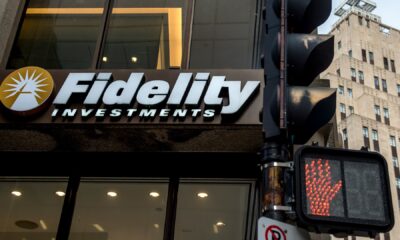
 Personal Finance1 week ago
Personal Finance1 week ago
 Economics1 week ago
Economics1 week ago
 Economics6 days ago
Economics6 days ago
 Personal Finance1 week ago
Personal Finance1 week ago
